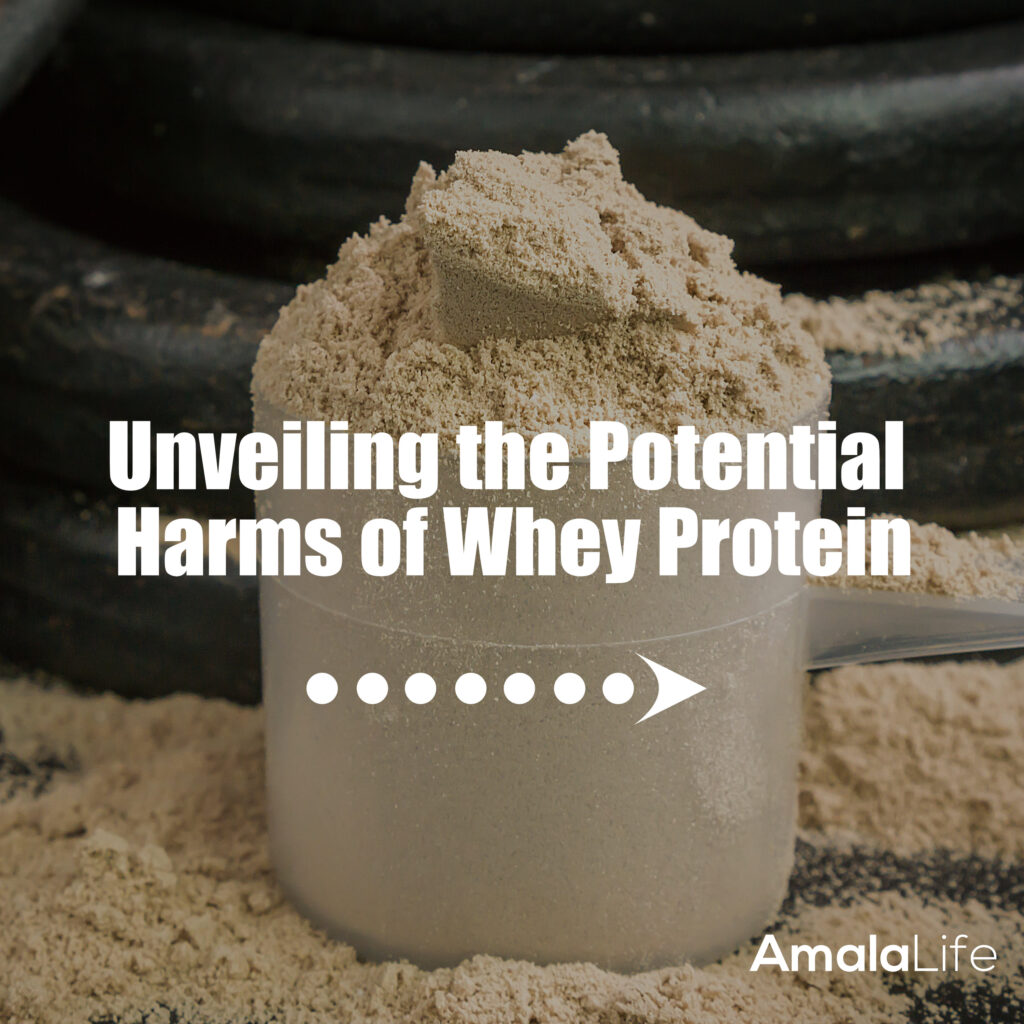Unveiling the Potential Harms of Whey Protein

In the realm of fitness and wellness, protein consumption has taken center stage. One popular source of protein is whey protein, derived from milk during the cheese-making process. While it’s often hailed for its muscle-building properties, there’s another side to whey protein that often goes unexplored – a side that calls for a balanced consideration, especially for those following a vegan lifestyle.
Digestive Discomfort and Allergies
Digestive distress is a common concern associated with whey protein consumption. Bloating, gas, and stomach discomfort can plague individuals who are sensitive to lactose or have milk allergies. For vegans who have opted to exclude animal-derived products from their diets, these issues can be especially troublesome. Vegan-friendly protein alternatives, such as pea protein, brown rice protein, and hemp protein, offer a way to avoid such digestive woes while still meeting protein needs.
Ethical Considerations
From an ethical standpoint, whey protein might not align with the values of individuals who follow a vegan lifestyle. The dairy industry, even in its byproduct utilization, has its share of concerns, including animal welfare, environmental impact, and sustainability. For those who’ve chosen a vegan path not only for health but also for these ethical reasons, seeking plant-based protein options becomes not just a choice, but a commitment to their values.
Kidney Health and Excessive Protein Intake
Concerns about kidney health have also been raised in relation to whey protein consumption. Excessive protein intake, whether from whey or any other source, could potentially strain the kidneys over time. This issue highlights the importance of moderation and balance in one’s dietary choices. Vegan protein sources like lentils, chickpeas, quinoa, and tofu offer an excellent way to maintain protein intake while mitigating potential kidney-related risks.
Weight Management and Nutritional Balance
While protein is undeniably important for weight management and muscle recovery, solely relying on whey protein without considering the broader nutritional context can have unintended consequences. Vegan protein sources often come bundled with essential nutrients like fiber, vitamins, and minerals that contribute to overall health. Incorporating a variety of plant-based proteins ensures that you not only meet your protein goals but also support your body’s holistic nutritional needs.
The Vegan-Friendly Solution
For those embracing a vegan lifestyle, the world of plant-based protein options is ever-expanding. Pea protein, derived from yellow peas, boasts an impressive amino acid profile and is easy on the digestive system. Brown rice protein is hypoallergenic and contains a balanced array of amino acids. Hemp protein offers the benefits of omega-3 fatty acids and dietary fiber. These alternatives provide vegans with a diverse range of protein sources that not only nourish the body but also resonate with their ethical beliefs.
In the journey towards fitness and wellness, knowledge empowers us to make informed choices. While whey protein might be suitable for some, the potential downsides underscore the importance of exploring vegan-friendly protein alternatives. By embracing a variety of plant-based protein sources, vegans can nourish their bodies, support their values, and maintain their commitment to a holistic approach to health.
In a world where options abound, making choices that align with our beliefs and well-being is the true hallmark of a mindful and empowered individual. So, whether you’re a devoted vegan or simply seeking a healthier path, remember that the journey is not just about the destination, but the conscious steps we take along the way.





